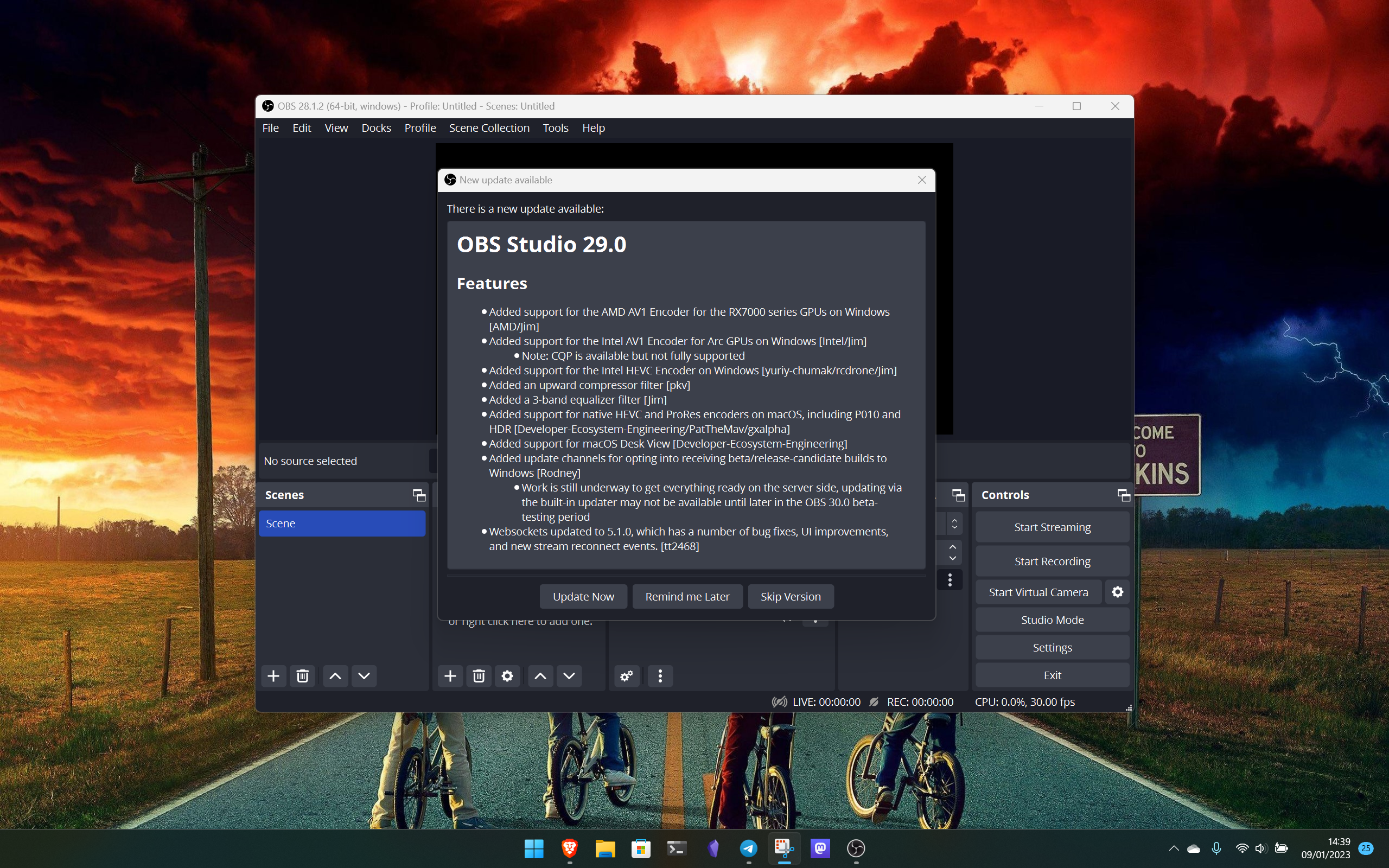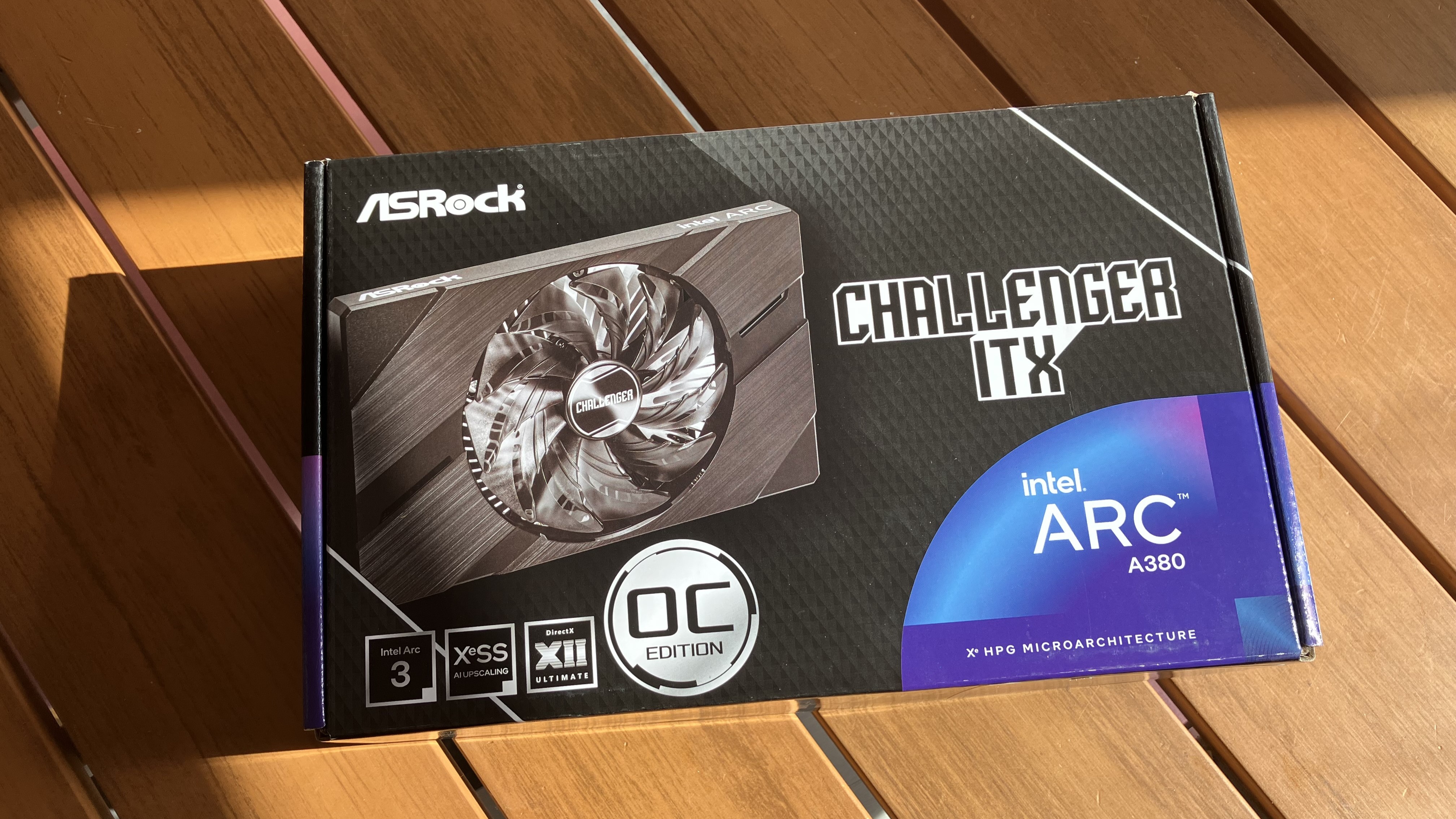OBS Studio 29 launches with AV1 encoding for AMD and Intel Arc
The next big thing in encoders is now available for all three GPU makers.

What you need to know
- The OBS Studio version 29 update has now hit the stable channel and is available to all.
- The headline new feature is AV1 encoding support for both supported AMD Radeon and Intel Arc GPUs.
- NVIDIA 40 series cards already had access to AV1 but now all three GPU makers are included.
Content creators that use OBS Studio have a little treat in store as version 29 is now generally available. The open-source broadcasting software has many new features included, as always, but the headline feature is one that will be of significance to owners of Intel Arc GPUs and AMD's latest Radeon releases.
Version 28 had support for hardware AV1 encoding utilizing the new NVIDIA 40 series graphics cards, version 29 brings that to both AMD and Intel users as well.
Intel actually beat NVIDIA to the market with hardware AV1 encoding with the release of the Arc A380, and then the subsequent launch of the A750 and A770. OBS support, however, was initially not available.
OBS Studio 29 is now out!This release brings additional encoders, including AV1 on the AMD RX7000 series and AV1/HEVC for supported Intel GPUs on Windows, and HEVC and ProRes support on macOS, as well as fixes for bugs and crashes.Full changelog: https://t.co/tomxlPgOvnJanuary 9, 2023
Here are the highlights from the changelog as it relates to Windows users of OBS:
- Added support for the AMD AV1 Encoder for the RX7000 series GPUs on Windows
- Added support for the Intel AV1 Encoder for Arc GPUs on Windows (Note: CQP is available but not fully supported)
- Added support for the Intel HEVC Encoder on Windows
- Added an upward compressor filter
- Added a 3-band equalizer filter Added update channels for opting into receiving beta/release-candidate builds to Windows
There are a number of tweaks and improvements added, too, and you can peruse the full changelog on the OBS GitHub repo.
Windows Central's take: Ready for AV1 streaming when you are Twitch and YouTube

AV1 is a big deal, though right now it's not entirely useful. Content creators can use it and upload their content to YouTube, but right now live streaming isn't supported. You would imagine it's only a matter of time, but that time frame isn't yet something we know.
We do know that Twitch plans to support AV1 and since YouTube already does, you would imagine it's a given that live broadcasting will be included at some point. The fact that all three GPU makers now offer hardware encoders for AV1 may also help to speed up the process.
Get the Windows Central Newsletter
All the latest news, reviews, and guides for Windows and Xbox diehards.
AV1 is a more efficient way of encoding video so it's also in the platform's best interests to get on board. In simple terms, AV1 allows for video encoding at comparable quality to existing encoders, but with smaller file sizes. And for streaming, this could well become a game changer. Sure, you need an Arc, Radeon 7000 series, or NVIDIA 40 series to make use of it, but of the three, Intel is definitely the best bet.
For example, the Arc A380 is around $150 and also has the hardware AV1 encoder. It's a low-cost, fairly low-power graphics card and it's conceivable you could add one of these to your streaming rig as a dedicated encoding card versus splashing a lot of cash on a new AMD or NVIDIA card.

Richard Devine is a Managing Editor at Windows Central with over a decade of experience. A former Project Manager and long-term tech addict, he joined Mobile Nations in 2011 and has been found on Android Central and iMore as well as Windows Central. Currently, you'll find him steering the site's coverage of all manner of PC hardware and reviews. Find him on Mastodon at mstdn.social/@richdevine
